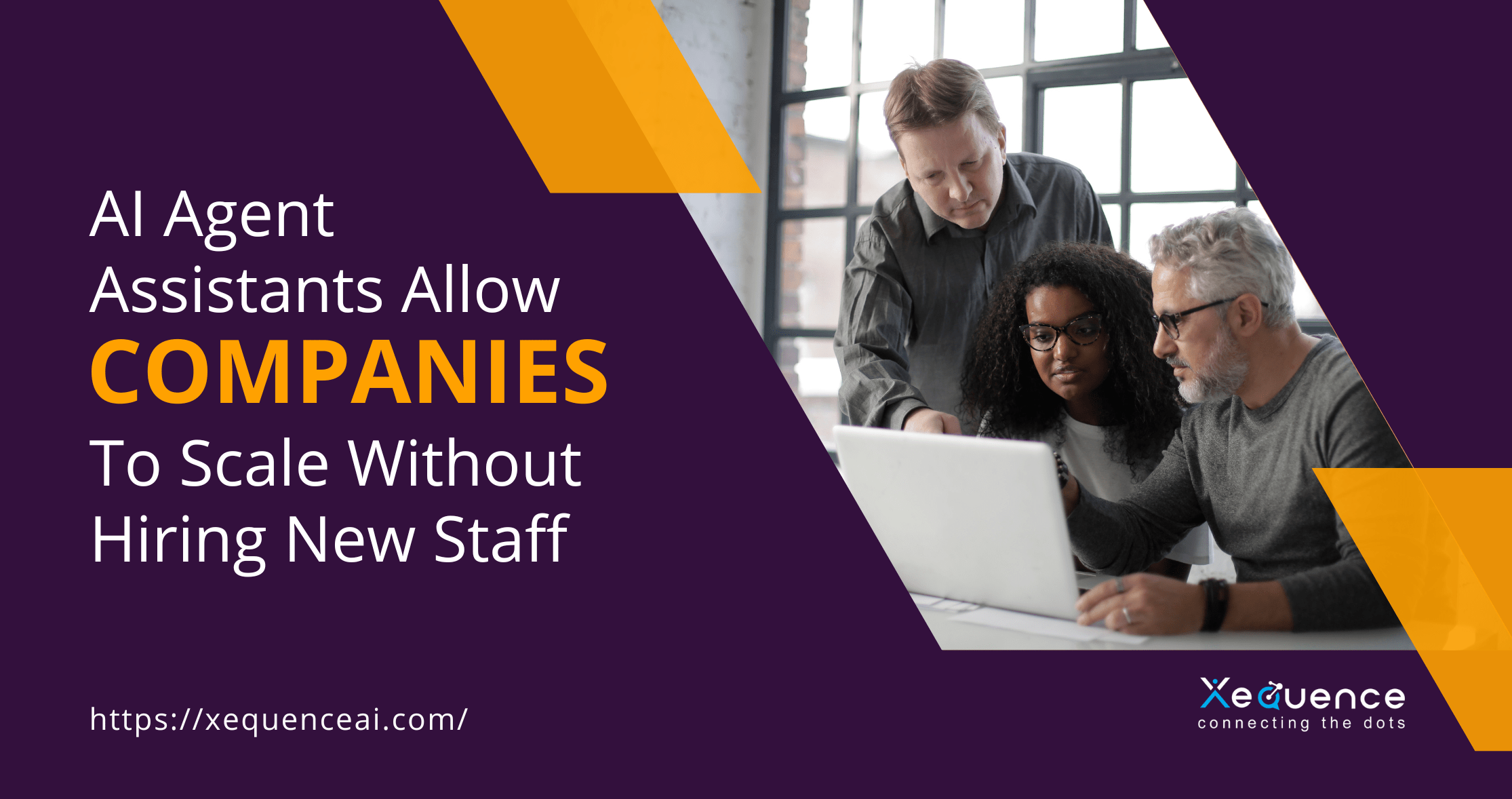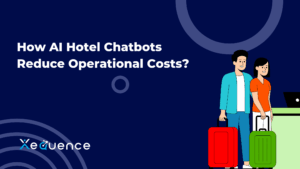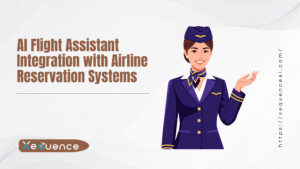- Home
- Artificial Intelligence
- AI Agent Assistants Allow Companies To Scale Without Hiring New Staff
AI Agent Assistants Allow Companies To Scale Without Hiring New Staff
- October 26, 2025
- Rajib Kar
- Artificial Intelligence, Gen AI, Guest Experience

AI Agent Assistants: How Businesses Scale Without Hiring New Staff
AI-powered scalability is no longer about hiring more in the modern-day business environment. Companies are focusing on smarter growth, one that is powered by technology, data, and automation. With firms grappling with the dual dilemma of achieving higher productivity at a manageable cost, AI agent assistants have become the solution to the puzzle. These online colleagues are not merely customer-facing chatbots but are cognitive tools that can reason, learn, and autonomously complete tasks previously done by whole groups of people. AI agent assistants are capacity building and scaling enterprise processes at a rate and scale unheard of, with no additional staffing required, from decks to customer experiences covering IT operations and optimization of customer service.
The Intelligence Boom of the Digital Agents
The difference between modern AI agents and the rest is the ability to make autonomous decisions. As traditional automation was used to repeat tasks according to some predetermined rules, AI agent assistants engage machine learning, natural language processing (NLP), and reasoning algorithms to process data and take actions.
Research by Gartner suggests this Business automation tools 2025 can independently address all types of customer service inquiries up to 80 percent by the year 2029, allowing human workers to devote their time in areas with a high impact. This independence is creating a significant change in the model of workforce, which is no longer routine task management but value-based problem solving. AI agents are used in the following areas by enterprises:
- Customer Care: Conversational agents respond to the inquiries, refunds, and feedback in real time, reducing the response time by a factor of 70.
- Operations: Digital workers watch workflows, discover bottlenecks, and perform practical changes.
- Finance: Smart assistants assist in the automatic invoice verification, risk analysis, and audit of expenses and decreases human error and downtime.
Real-World Examples with Case Studies
Assistants built on AI agents are not a dream anymore, as they are transforming all industries. Now, we can have some practical examples of AI automation enterprise scaling with business automation tools 2025.
H&M Virtual Shopping Assistant: This AI agent decreased cart abandonment by 40% and increased online conversion 3x to help the brand offer personalized shopping experiences to consumers one by one, without having to overstaff the support teams.
IBM Watson AIOps: This AI operations assistant assists large IT firms, reducing incident resolutions by 60 and reducing the number of false alerts by 80, saving millions in IT overheads and ensuring the reliability of a given system.
Bank of America: Agentic AI engages with more than 1 billion customers in total, with a 98 percent issue resolution rate, which leaves human agents with more complex and high-value work.
These case studies highlight why AI agent assistants are cost-efficient answers that do not undermine the existence of less-skilled employees—they magnify the effect of human teams.
Enterprise Scaling: Without Headcount Increase
The basic strength of AI agent assistants is scalable performance. The hotels can easily scale business with AI as the agents have the ability to perform 24/7, analyze large volumes of data in real-time, and are not exhausted by heavy workloads as human employees are. Many firms that have adopted such systems have been recording benefits that are measurable.
- The AI implementation results in a reduction of up to 60% in the support and operation costs of enterprises.
- Workers will be allowed to devote time to innovations, strategy development, and building relationships.
- AI agents reduce, by half, the amount of time that routine processes take, improving the pace of turnaround and customer satisfaction.
In sectors such as supply chain logistics, argentic AI constantly reasons about the situation going on in the world, detects disruptions, and reroutes the shipments independently—something that full teams of analysts did. On the same note, in the financial sector, AI agents facilitate easier loan applications and credit inspections and reporting, thereby reducing bureaucracy and enhancing precision.
Balancing Automation and Human collaboration
They are complementing human beings rather than replacing them, as some people are simply afraid of. These systems are efficient at automation of repetitive jobs, whereas human beings specialize in being creative, empathetic, and innovative. The 2025 workforce is smarter, leaner, and much more adaptive than ever before.
Enterprise Adoption Driving Benefits
AI implementation helps enterprises save millions of dollars in operating, support, and staff expenses. Also, it drives automation and helps organizations release of employees to innovation and leadership. AI agents are constantly examining performance metrics and displaying insights strategically to implement changes.
Improving the interactions between AI systems and human labor by combining both automation and cognitive insight, the activity of employees in AI-driven organizations shifts to that of strategy co-creators, redefining the manner in which tasks are performed in high-performing business ventures.
The Future of AI-Driven Enterprise Scaling
In the future, AI agent assistants will develop into a full-fledged digital partner instead of a support mechanism. The next-generation agents will also be able to coordinate between business units, manage supply chain ecosystems, and even be a part of decision-making processes.
According to a report by McKinsey, AI-based automation is estimated to add close to 13 trillion to the worldwide GDP by 2030- the majority of it by way of efficiency improvements and clever enterprise expansion. With the continuous learning and adaptation of AI agents, the first companies to adopt the systems will have a sustainable competitive advantage of agility and responsiveness.
Conclusion
With productivity and flexibility prevailing in an age where the headcount growth rate fades away, artificial intelligence agent aides are reshaping the structure of enterprise operation. These digital agents are making themselves indispensable to the workings of contemporary businesses by automating repetitive work processes, cutting down costs, and enabling the teams to concentrate on the creative and strategic assessment.
Recent Posts
Newsletter
Get regular updates on data science, artificial intelligence, machine
You may also like

AI Travel Assistants: The New Personal Travel Planners

5 Things an AI Travel Assistant Can Do in Seconds

How AI Hotel Chatbots Reduce Operational Costs?




